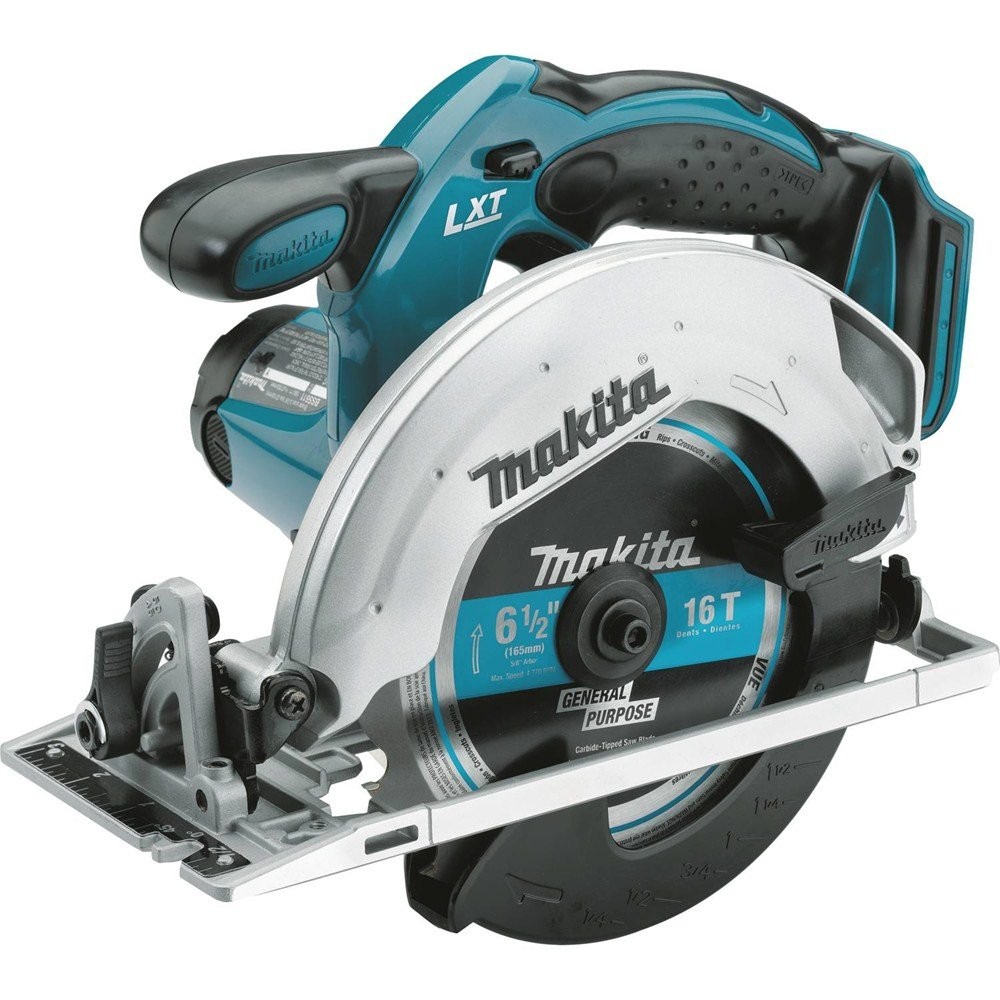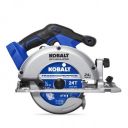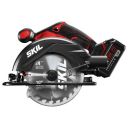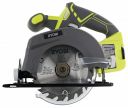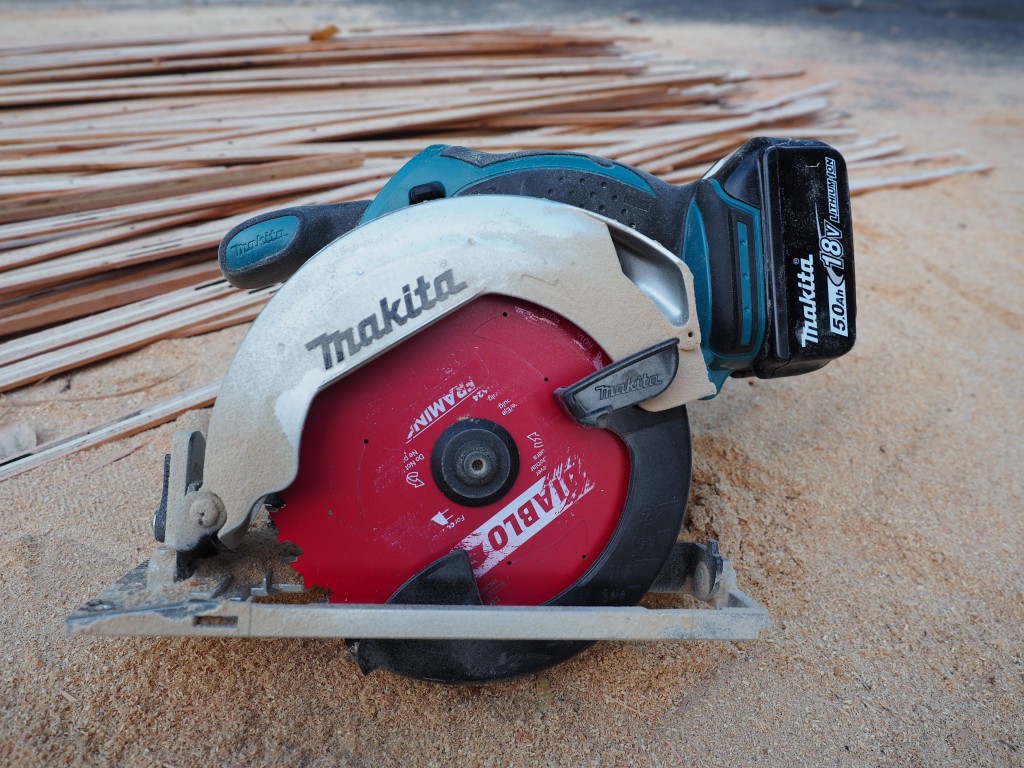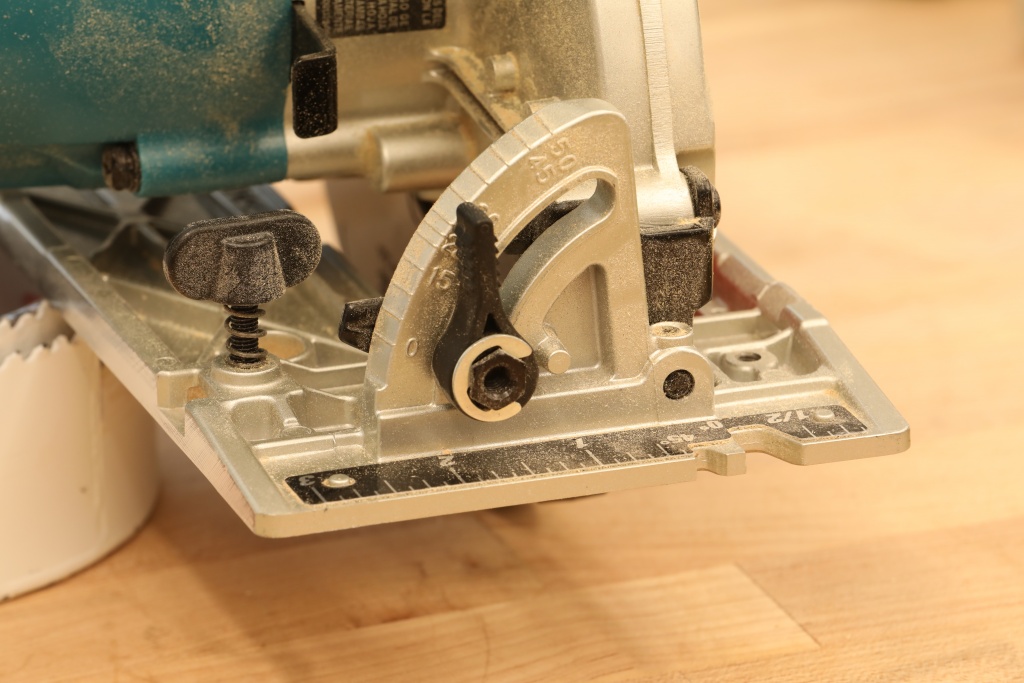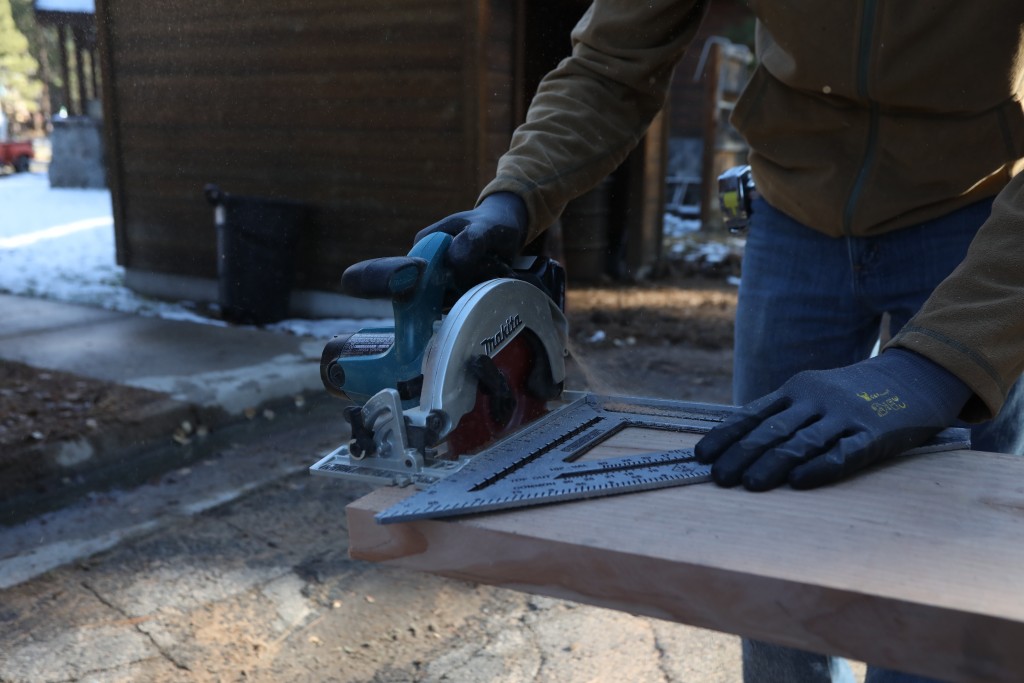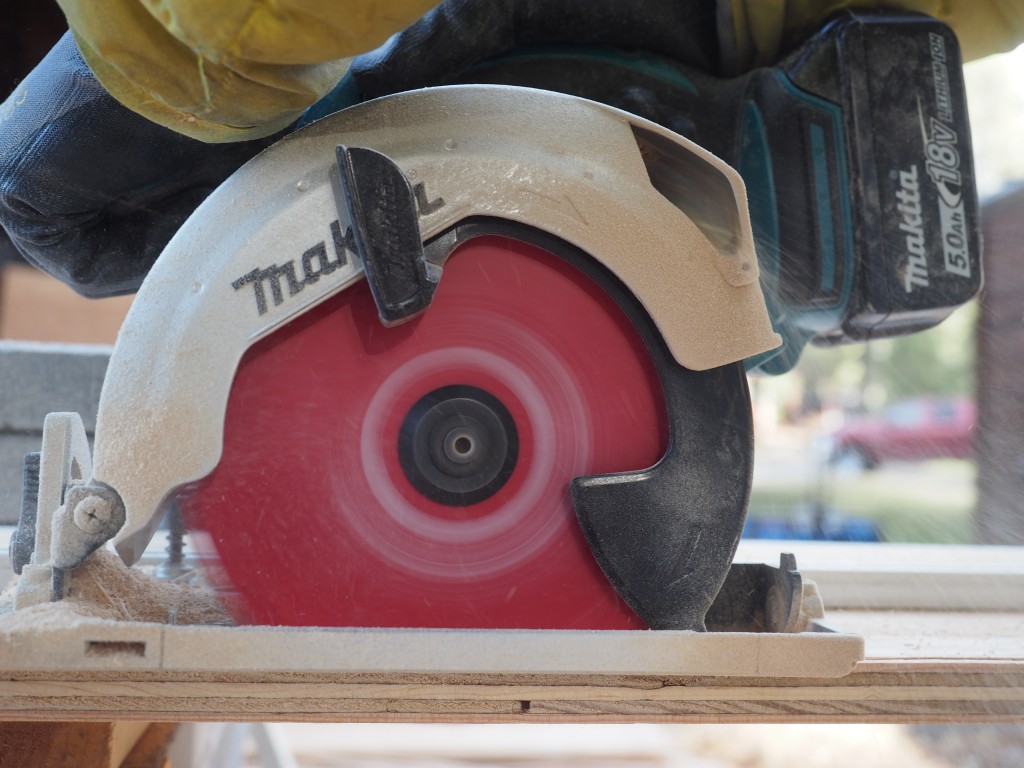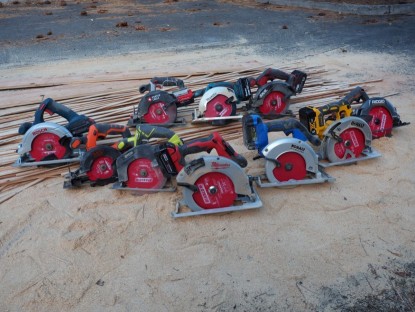Makita XSS02Z Review
Our Verdict
Compare to Similar Products
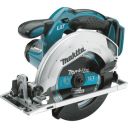 This Product Makita XSS02Z | |||||
|---|---|---|---|---|---|
| Awards | Best Mid-Sized Saw | Best Bang for Your Buck | |||
| Price | $119 List $103.00 at Amazon | $130 List $88.33 at Amazon | $150 List $149.99 at Amazon | $80 List | $79 List |
Overall Score  |
|||||
| Star Rating | |||||
| Bottom Line | The Makita XSS02 is an average 6 1/2" saw with lean features but plenty of cutting power | If you need to make lots of cuts on a single charge, then the Kobalt is the ticket | This fully-loaded saw makes cut adjustments a breeze, but the motor power leaves something to be desired | A competent, affordable saw that is a great choice for non-professional users | This saw will appeal to the novice DIY crowd due to its modest price tag and ease of use features |
| Rating Categories | Makita XSS02Z | Kobalt KCS 6524B-03 | Ridgid R8653B | SKIL CR540601 | Ryobi P507 |
| Cutting (50%) | |||||
| Ease of Use (30%) | |||||
| Battery (20%) | |||||
| Specs | Makita XSS02Z | Kobalt KCS 6524B-03 | Ridgid R8653B | SKIL CR540601 | Ryobi P507 |
| Blade Side | Left | Right | Right | Left | Left |
| Blade Size | 6-1/2" | 6-1/2" | 7-1/4" | 6-1/2" | 6-1/2" |
| Brushless Motor? | No | Yes | Yes | No | No |
| Blade Brake? | No | Yes | Yes | Yes | No |
| Bevel Positive Stops? | No | No | Yes | No | No |
| Estimated Linear Feet of 3/4" Plywood Cut per Charge | 220 ft | 360 ft | 304 ft | 324 ft | 202 ft |
| Measured Weight w/o Battery | 6.0 lb | 6.6 lb | 8.4 lb | 5.8 lb | 5.0 lb |
| Measured Max Depth of Cut w/ Framing Blade | 2-1/16" | 2-3/16" | 2-3/16" | 1-15/16" | 1-7/8" |
| Average 6x12" Cross Cutting Time | 5.3 sec | 3.9 sec | 6.3 sec | 6.6 sec | 7.6 sec |
| Rafter Hook? | No | No | No | No | No |
| Battery Used in Testing | 5 Ah | 4 Ah | 5 Ah | 5 Ah | 4 Ah |
Our Analysis and Test Results
For those users that like power tools with lots of bells and whistles, the Makita XSS02 will not impress. The Makita is a pared-down machine in the vein of a traditional plug-in circular saw. Its adjustments lack positive stops, there isn't a cutting light, and the sightlines are hard to follow. However, it has plenty of power, levers securing bevel and depth adjustments, and one of the better blade replacements systems that we have tested.
Performance Comparison
Ease of Use
One of the most frustrating things about circular saws is changing the blade. With this in mind, one can make the argument that the blade changing system on the Makita is it's best feature. The blade lock is easy to depress while maintaining a good grip on the motor housing. Moreover, the locking points occur every few degrees, so you don't have to rotate the blade around and around searching for one. Additionally, the Allen key is conveniently located in a flush slot next to the battery, so it'll be available when you need it.
While we like the blade swapping ease of the Makita and, of course, that it is cordless, it is best described as a bare-bones machine. What this means is that the saw requires the user to double-check depth and bevel adjustments with a tape measure and square. Additionally, the saw lacks a cutting light, positive stops on the bevel, and blade brake — modern features of which we are quite fond. Moreover, the sightlines are off about a quarter inch.
It's not all bad with the Makita, however. The cutting depth adjustment lever is silky smooth and its 2 1/16" cutting depth is among the deepest in the class including the 7 1/2" saws. Lastly, the saw is relatively light at 7.4 pounds with a 5 amp hour battery.
Cutting
The Makita is literally (and figuratively) a cutting machine. The motor surprised us with the amount of power it can kick out for a 6 1/2" saw. The Makita can handle full depth cross cuts of both soft and hardwood. And, it does a pretty good job ripping planks and sheeting, too.
To test a saws cutting capability we ran it through some demanding cuts and timed the machine in each task. First, we ripped a 10 foot 2 x 12" plank. We repeated this task multiple times and it averaged a respectable 54 seconds while showing few signs to struggle to boot. Next, we made full blade depth crosscuts of a 6 x 12" header — the saw averaged 5.6 seconds which is about a second slower than the class leaders. Finally, we made crosscuts of dense laminated veneer lumber (LVL). Here, too, the Makita delivered results comparable to the 7 ½" framing saws.
Battery
Battery life is a big deal in cordless tools, especially those tools like a saw that is power-hungry. To be frank, we were less than impressed with the battery life of the Makita's 5 amp hour cell. While it wasn't terrible, its performance was below average for the class.
To derive a practical measure of a saw's battery life we set the saws to ripping an 8-foot sheet of 3/4 inch plywood. We used a guide so that the saws wouldn't walk and produce added friction thus throwing-off the results. The Makita made 27 rips plus 4 feet before its battery kicked the bucket. That's 220 humdrum linear feet, which isn't so good for a 5 amp hour battery. To put this in context, the class average was 252 linear feet.
Value
While no reasonable person would say that the Makita is anything less than a reliable saw, it is a bit overpriced in our estimation. The fact is, one can get a saw with longer battery life or greater ease of use for about the same amount of money. While this saw is certainly not a rip-off, we can't say that it's a great value either.
Conclusion
The Makita XSS02 has some laudable design features such as a fantastic blade swapping system, adjustment levers, and ample power. However, the battery life is middle of the road, and the shoe adjustments are old school — meaning that they'll require some double-checking. For those used to older circular saws, this won't seem like a big deal. As for greenhorns, the lack of these features could be problematic.


